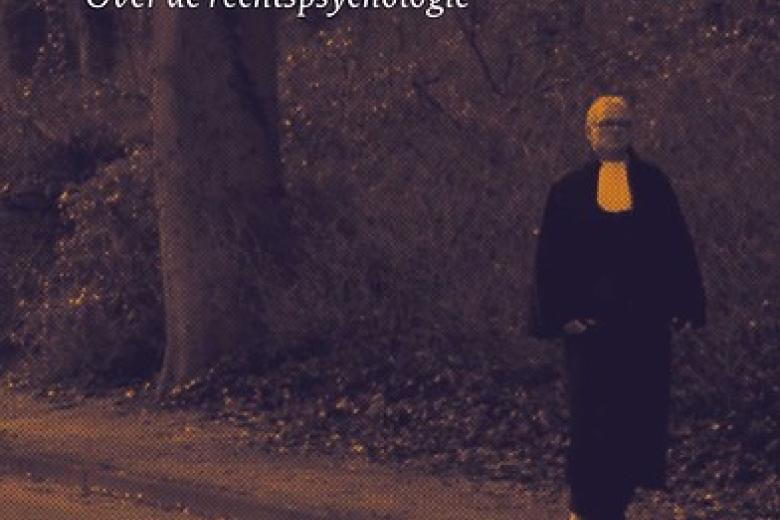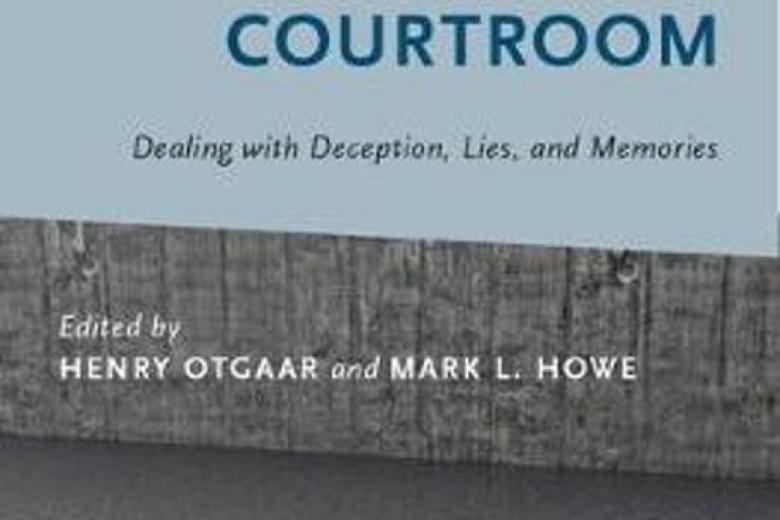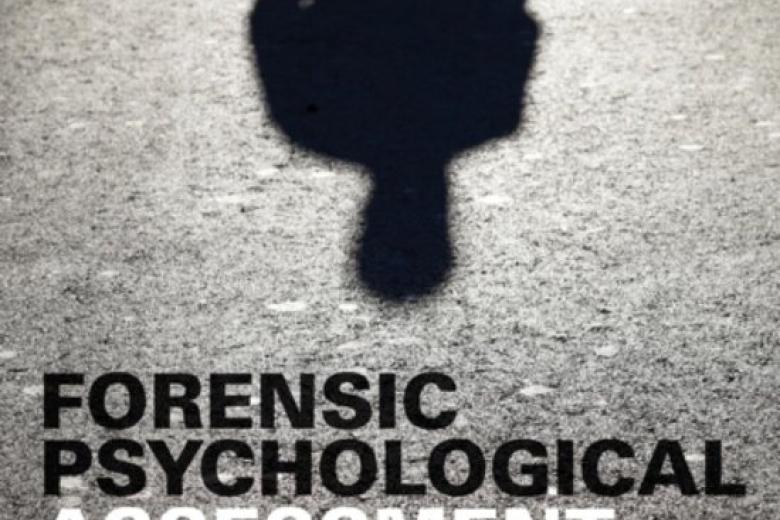FP Publications and received grants
Publications of the Forensic Psychology group
-
Sagana, A., Zhang, M., & Sauerland, M. (2026). Public attitudes towards police use of AI-driven face recognition technology. Computers in Human Behavior, 174, Article 108821. https://doi.org/10.1016/j.chb.2025.108821More information about this publication
-
de Vogel, V., Keulen - de Vos, M., Leong, J., & Robbe, E. (2025). Working with Women in Forensic Mental Health Care: Guidelines for Gender-Responsive Assessment and Treatment. International Journal of Offender Therapy and Comparative Criminology, 69(15), 2165-2184. https://doi.org/10.1177/0306624X251325899More information about this publication
-
Bogaard, G., Nieuwkamp, V., & Colwell, K. (2025). Breaking the truth bias: the impact of comparable truth baselines and reality interview on veracity judgments by laypeople and police officers. Police Practice and Research. Advance online publication. https://doi.org/10.1080/15614263.2025.2570276More information about this publication
-
Bücken, C. A., Riesthuis, P., Sumampouw, N., & Otgaar, H. (2025). Indonesian forensic practitioners' reported use of strategies to reverse parental suggestions. Psychology Crime & Law. Advance online publication. https://doi.org/10.1080/1068316X.2025.2568731More information about this publication
-
Merckelbach, H., & Dandachi-FitzGerald, B. (2025). Symptom overreporting and its consequences for treatment. Current Opinion in Psychology, 65, Article 102091. https://doi.org/10.1016/j.copsyc.2025.102091More information about this publication
-
van Tilburg, C. A., de Ruiter, C., Lodder, P., Bachrach, N., & van Dam, A. (2025). Trust the therapists' trust: working alliance development in relation to treatment attendance and completion in intimate partner violence perpetrator group therapy. Psychotherapy Research. Advance online publication. https://doi.org/10.1080/10503307.2025.2548501More information about this publication
-
De Page, L., Dandachi-FitzGerald, B., & Merckelbach, H. (2025). Sensitivity of the Genuine Symptoms Scale of the Self-Report Symptom Inventory (SRSI) to Psychopathology: Enhancing the Informational Value of a Symptom Validity Test for Symptom Overreporting. Psychological Injury and Law. Advance online publication. https://doi.org/10.1007/s12207-025-09543-wMore information about this publication
-
De Beuf, T. L. F., van Es, R. M. S., de Keijser, J. W., & Otgaar, H. (2025). Justice at Risk? The Influence of Recidivism Risk Information on Evaluation of Evidence and Determination of Guilt. Behavioral sciences, 15(9), Article 1277. https://doi.org/10.3390/bs15091277More information about this publication
-
Bastiaens, A., van Prooijen, J.-W., & Jelicic, M. (2025). Seeing through Troubled Water: Proposing a Narrow Focus on Behavioral Warning Signals for the Prevention of Terrorist Violence. Terrorism and Political Violence, 1-20. Advance online publication. https://doi.org/10.1080/09546553.2025.2556858More information about this publication
-
Bogaard, G., Broers, N. J., & Meijer, E. H. (2025). The impact of model statements on verbal differences between truth and lies when using a comparable truthful baseline. Legal and Criminological Psychology. Advance online publication. https://doi.org/10.1111/lcrp.70009More information about this publication
-
Crisan, I., Ciumageanu, M. D., Voin, S. M., Akca, A. Y. E., & Giromini, L. (2025). The Cross-Cultural Ability of the Inventory of Problems-29-M (IOP-29-M) to Detect Feigned Symptom Presentations: A Replication of Akca et al. (2023) on a Romanian-Speaking Sample. Journal of Forensic Psychology Research and Practice. Advance online publication. https://doi.org/10.1080/24732850.2025.2551646More information about this publication
-
Riesthuis, P., & Otgaar, H. (2025). On the use of receiver operating characteristic area under the curve in eyewitness memory research. Legal and Criminological Psychology, 30(2), 212-230. https://doi.org/10.1111/lcrp.12300More information about this publication
-
Zhang, Y., Otgaar, H., Nash, R. A., & Li, C. (2025). The effects of false feedback on state memory distrust towards commission and omission and recognition memory errors. Royal Society Open Science, 12(9), Article 251045. https://doi.org/10.1098/rsos.251045More information about this publication
-
Mooney, R. (2025). Gender, Misogyny, and the Internet: The Radicalisation of Young Men in the Involuntary celibate (Incel) Community. In G. McLaughlin, & A. Huber (Eds.), Unravelling Radicalisation: Exploring Concepts, Contexts, and Perspectives (pp. 243-266). Springer Nature. https://doi.org/10.1007/978-3-031-91887-2_12More information about this publication
-
Tessmann, J., Fuermaier, A. B. M., Dandachi-FitzGerald, B., & Lehrner, J. (2025). The Utility of an Attention-Based Performance Validity Test in a Sample of Austrian Early Retirement Claimants. Psychological Injury and Law. https://doi.org/10.1007/s12207-025-09544-9More information about this publication
-
Mooney, R., Wall, H. J., Humphries, J., & Heim, D. (2025). Association(s) between five-factor model and dark triad traits and offending behaviour in adults: A systematic review. Aggression and Violent Behavior, 84, Article 102078. https://doi.org/10.1016/j.avb.2025.102078More information about this publication
-
Battista, F., Otgaar, H., Mangiulli, I., & Curci, A. (2025). Investigating how adopting different deceptive strategies simultaneously affects memory. Memory. Advance online publication. https://doi.org/10.1080/09658211.2025.2538718More information about this publication
-
Muris, P., Otgaar, H., Donkers, F., Ollendick, T., & Deckers, A. (2025). Caught in the Web of the Net? Part II: A Motivation-Based Developmental Psychopathology Model for the Aberrant Internet Use in (Young) People with Autism Spectrum Disorder. Clinical Child and Family Psychology Review. Advance online publication. https://doi.org/10.1007/s10567-025-00539-1More information about this publication
-
Riesthuis, P., Rassin, E., Bücken, C., Booker, A., Chin, J. M., Goldfarb, D., Deferme, D., & Otgaar, H. (2025). Through the lens of legal professionals: Examining the smallest effect size of interest for eyewitness memory research. The International Journal of Evidence & Proof. Advance online publication. https://doi.org/10.1177/13657127251357630More information about this publication
-
Gijsbers, E., & Keulen-de Vos, M. (2025). Empathy and Offending, a Study About the Role of Cognitive and Affective Empathy in Sexual Violence. International Journal of Offender Therapy and Comparative Criminology. Advance online publication. https://doi.org/10.1177/0306624X251355276More information about this publication
Intuïtie maakt meer kapot dan je lief is (by Harald Merckelbach)
We zijn moraalridders. We nemen elkaar de godganse dag de maat. We hebben minder dan een seconde nodig om de een aardig en de ander een schurk te vinden. En daar maken we onze medemens vervolgens ruimhartig deelgenoot van, bij de koffiemachine of op Twitter. Dat schept een band. Maar met die intuïties van ons slaan we voortdurend de plank mis. Vooral in de rechtszaal kan dat dan verkeerd uitpakken. Intuïtie maakt meer kapot dan je lief is laat zien wat er dan gebeurt. Het gaat over boeven die er reuze sympathiek uitzien en daarom de dans ontspringen. Over onschuldige burgers die we een misdaad in de schoenen proberen te schuiven. En over verstandige politiemensen, officieren van justitie, rechters en getuigen-deskundigen die toch miskleunen. Wat moeten we dan wel doen? Het korte antwoord: onze intuïtie hevig wantrouwen en zo lang mogelijk buiten de deur houden. Het langere antwoord, geïllustreerd aan de hand van luchtige, hilarische, maar ook tragische voorbeelden, is dit boek. Harald Merckelbach (1959) is hoogleraar rechtspsychologie aan de Universiteit Maastricht. Hij schrijft wetenschapscolumns voor NRC Handelsblad. Hij trad vaak op als getuige-deskundige in strafzaken.

Routes van het Recht - Over de rechtspsychologie (by Peter van Koppen, Jan de Keijser, Robert Horselenberg, Marko Jelicic)
De rechtspsychologie gaat over het gedrag van mensen in het recht. Over getuigen en hoe zij worden ondervraagd. Over rechters en hoe zij beslissen. Over politiemensen en hoe zij misdrijven proberen op te lossen. Over verdachten en over hoe en waarom zij misdrijven plegen. In Routes van het Recht wordt die psychologie van het recht, en nog veel meer, uiteengezet aan de hand van de kennis die in het vakgebied in de afgelopen honderd jaar is verzameld.
Zonder onnodig juridisch en psychologisch jargon worden vragen over herkenningen, leugendetectie, forensisch-psychologische tests, rechterlijke dwalingen en verhoren van kinderen, volwassenen en verdachten beantwoord. Het is een bijzonder naslagwerk en uitstekend geschikt als cursusmateriaal.

Finding the Truth in the Courtroom (Henry Otgaar & Mark L. Howe)
Finding the Truth in the Courtroom combines the science behind deception and memory and their relation in court. Testimonies are oftentimes the most important piece of evidence in legal cases. Hence, this book shows how such testimonies can be riddled with deception and/or memory errors, how to detect them, and what you can against them.

Forensic Psychological Assessment in Practice (by Corine de Ruiter & Nancy Kaser Boyd)
Forensic Psychological Assessment in Practice: Case Studies presents a set of forensic criminal cases as examples of a scientist-practitioner model for forensic psychological assessment. The cases involve a number of forensic issues, such as criminal responsibility, violence risk assessment, treatment planning, and referral to long term forensic care. Likewise, different types of offenses are covered, for example, sexual offending, arson, homicide, robbery and domestic violence. The authors address a variety of mental disorders including psychosis, posttraumatic stress disorder, psychopathy and other personality disorders. The book will be useful for novice and experienced forensic psychologists and psychiatrists who are looking for case studies that integrate the most recent empirical evidence with psychological test findings.

Memory Detection: Theory and application of the concealed information test (by Bruno Verschuere, Gershon Ben-Shakhar & Ewout Meijer)
Traditional techniques for detecting deception, such as the lie-detector test (or polygraph), are based upon the idea that lying is associated with stress. However, it is possible that people telling the truth will experience stress, whereas not all liars will. Because of this, the validity of such methods is questionable. As an alternative, a knowledge-based approach known as the Concealed Information Test has been developed which investigates whether the examinee recognizes secret information - for example a crime suspect recognizing critical crime details that only the culprit could know. The Concealed Information Test has been supported by decades of research, and is used widely in Japan. This is the first book to focus on this exciting approach and will be of interest to law enforcement agencies and academics and professionals in psychology, criminology, policing and law.
